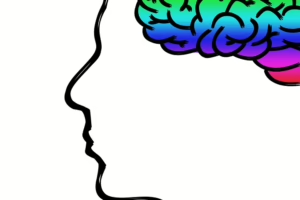The Mind Game: Unlocking the Secrets of Sports Psychology for Peak Performance
In the world of sports, physical prowess is only part of the equation. Athletes are increasingly recognizing the critical role that mental strength plays in achieving peak performance. Sports psychology has emerged as a vital field aimed at understanding and enhancing the psychological factors that influence athletic performance. This article delves into the essentials of sports psychology, exploring strategies that athletes can employ to unlock their full potential.
The Foundations of Sports Psychology
Sports psychology focuses on the intersection of psychology and sports science, analyzing how mental processes affect physical performance. Key areas of study include motivation, concentration, anxiety management, and self-confidence. Understanding these elements can help athletes enhance their performance and achieve their goals.
Motivation: The Driving Force
Motivation is the cornerstone of athletic performance. It encompasses intrinsic factors (personal satisfaction, passion for the sport) and extrinsic factors (rewards, recognition). Recognizing what drives an athlete can help in setting goals that not only align with their passion but also push them toward excellence.
Concentration: Staying in the Zone
The ability to maintain focus during competition is crucial. Distractions can derail an athlete’s performance, making concentration strategies essential. Techniques such as visualization, mindfulness, and routine development help athletes stay centered and engaged with their performance.
Anxiety Management: Turning Nerves into Energy
It’s common for athletes to experience anxiety, especially before major competitions. Understanding how to channel this anxiety into positive energy is a fundamental skill in sports psychology. Techniques such as deep breathing, positive self-talk, and pre-competition routines can help manage nerves effectively.
Self-Confidence: Believing in Yourself
Self-confidence significantly influences performance. Athletes often engage in affirmations and visualization exercises to boost their self-belief. Establishing a robust mental framework that emphasizes past successes can cultivate a confident mindset, enabling athletes to tackle challenges head-on.
Practical Applications
Implementing strategies from sports psychology can benefit athletes at all levels. Here are some practical strategies:
-
Goal Setting: Establish SMART goals (Specific, Measurable, Achievable, Relevant, Time-bound) that provide a clear path to achievement.
-
Visualization: Engage in mental imagery to rehearse techniques and visualize successful outcomes, embedding these visions into their psyche.
-
Mindfulness and Meditation: Practice mindfulness techniques to enhance focus and decrease stress during competition.
-
Building Routines: Develop consistent pre-performance routines to create a sense of familiarity and control before competitions.
- Journaling: Keep a performance journal to track progress, reflect on challenges, and reinforce positive thoughts.
The Role of Coaches and Support Systems
Coaches play a pivotal role in an athlete’s psychological development. They provide guidance, feedback, and support that can help athletes navigate mental challenges. Additionally, fostering a supportive environment that encourages open communication can enhance an athlete’s mental resilience and overall performance.
Conclusion
Sports psychology offers invaluable insights into the mental preparations necessary for peak performance. By harnessing strategies for motivation, concentration, anxiety management, and self-confidence, athletes can enhance their mental game just as rigorously as their physical training. As the connection between mind and body becomes more acknowledged, embracing the principles of sports psychology can lead to transformative outcomes in the world of athletics.
With a comprehensive understanding of the psychological factors influencing performance, athletes are better equipped to unlock their full potential and achieve their dreams.
For further reading and resources on sports psychology, refer to [modern_footnote_source_link].


























Add Comment